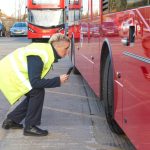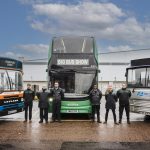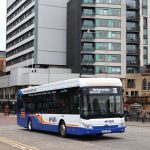With big data being utilised effectively in other sectors, is it time for the coach and bus industry to get a slice of the action?
When I began in the bus industry in 1985 it was just in the cusp of the change from mechanical ticket machines with transactions recorded manually to the first generation of electronic ticket machines (ETMs).

I was a London Transport man and the manual process was so vulnerable to mistakes or fraud that there was an ‘office’ facility formed where the job of the incumbents was to check the waybills added up.
In such circumstances it would have been difficult to manipulate data to give us anything that closely resembled effective management information.
An opportunity
Fast forward to the first generation ETMs and we had programmes like Wayfarer Inform, which empowered us in a very limited way to make better decisions.
We quickly had to adapt to even more sophisticated ETMs, smart ticketing, contactless and the other dimension of the ability to process the information coming from these transactions quicker, easier and ever more granular – the so-called era of ‘big data’.
If we’re honest, as an industry maybe we haven’t adapted as effectively as we should have.
Think of some of the applications of big data in other fields: The way that search engines automatically direct the user to where they need to be with the typing in of a few key words; targeting of online advertising; and the crunching of vast data sets by political organisations to pinpoint their policies to those most likely to be swayed by their message.
The fact that we have so many journeys and so many transactions that we need to record to protect revenue makes us an ideal industry to use the amount of data and the processing power to utilise this to improve our customer offering.
The big data opportunity is far more interesting than the well-trodden regulatory arguments that use up a lot of thinking time in the bus industry.
Instinctive thinking
In such an environment there would still be room for instinct, but instinct could be better informed by big data decision making. This could be the next big thing in driving profitability and improving services.
Services could be tailored much more accurately in terms of matching frequency with demand and the predictive power of big data could create a crossover, for example, between frequency of service and the weather forecast.
We all know instinctively that on a Saturday if it’s raining hard before 1100hrs, there’s little point in running the same frequency of service because it puts off the fair-weather shoppers, but we can’t quite nail the issue to have the confidence to translate that to what is provided on the ground. Big data would give us more confidence to make such decisions.
Using big data
This would require a change to the regulatory framework, but our job would be to demonstrate that regulatory framework needs to be fit for purpose to serve customers’ needs, rather than dictating the output itself.
And big data could be equally as relevant to coach as well as bus. Think of the role big data analytics could play in forecasting the most popular places to visit when planning tours.
The industry has embraced so much in terms of new technologies – big data is there to be exploited.






















